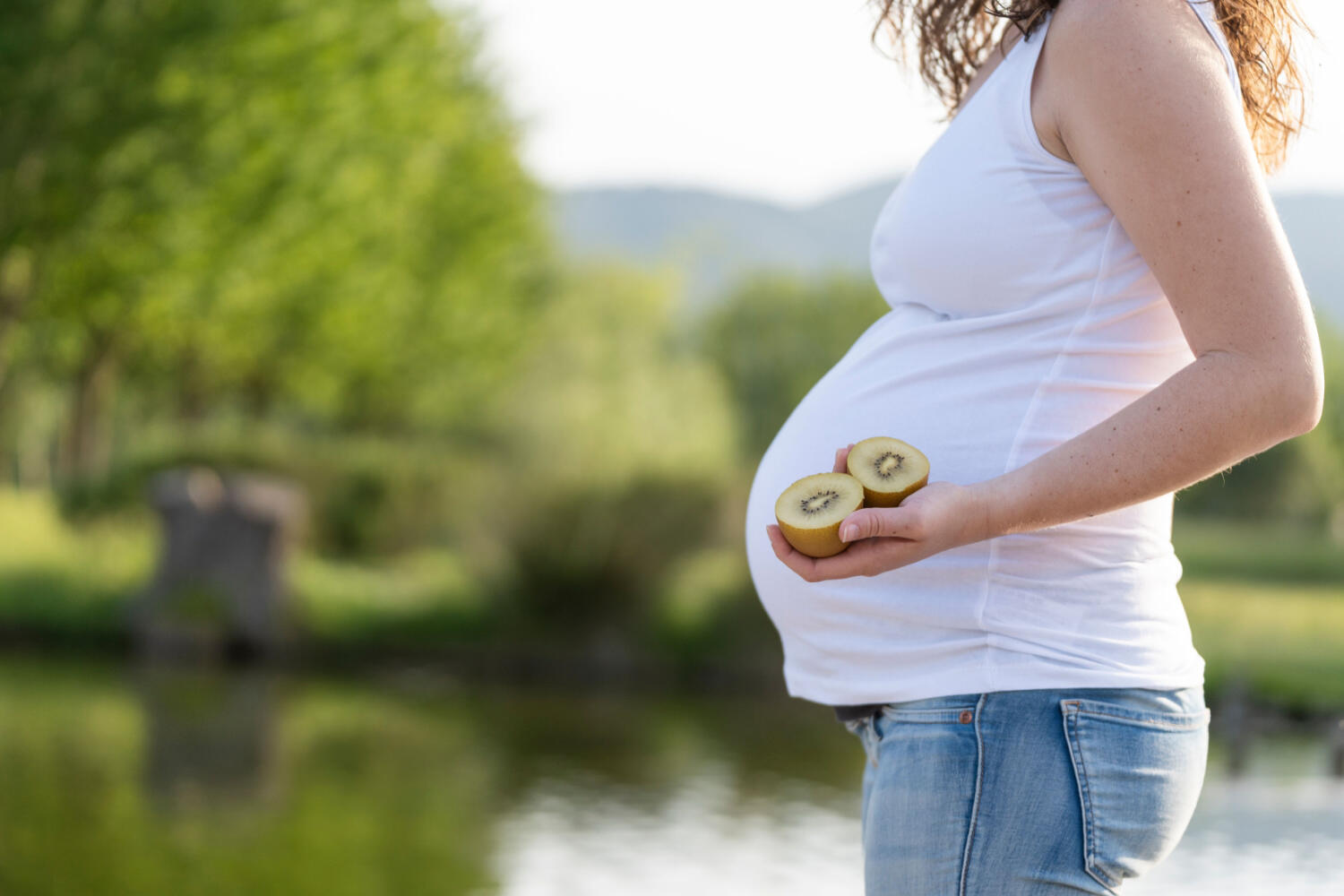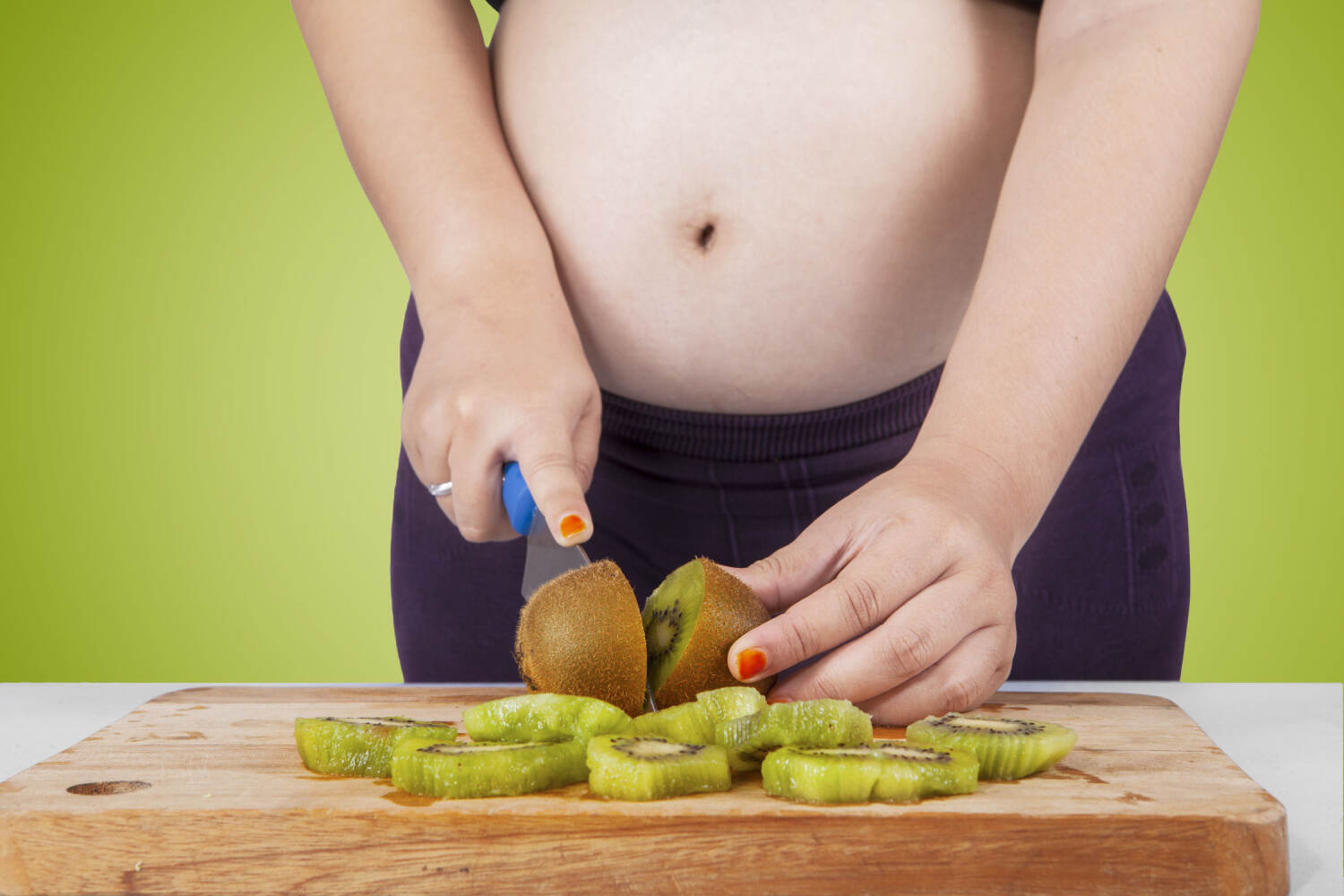
A good diet routine is essential for the healthy body of a mother and a child. Pregnancy is an important and very emotional event in a woman’s life. While various fruits are indicated for pregnant women, kiwi fruit is particularly rich in nutrients that give many advantages. Kiwi during pregnancy has several benefits.
The advantages of kiwi during pregnancy range from promoting fetal development and strengthening immunity to relaxing digestion and minimizing the probability of complications. In this article, we shall go into detail regarding the advantages of eating kiwi during pregnancy.
In This Article
- Is it Safe to Have Kiwi Fruit During Pregnancy?
- Kiwi Fruit Nutritional Profile
- Amazing Top 7 Benefits of Eating Kiwi During Pregnancy
- Side Effects of Kiwi During Pregnancy
- FAQ’s
Is it Safe to Have Kiwi Fruit During Pregnancy?
Yes, eating kiwi during pregnancy is safe. To ensure the healthy growth and development of the fetus, nutritionists and physicians highly urge pregnant women to consume a diversity of fruits in their diet. Kiwis contain many essential vitamins and minerals, including vitamin E, vitamin K, folate, potassium, and dietary fiber.
These essential ingredients make kiwis a very good fruit for pregnant women. Kiwis are also low in sugar, so pregnant women can have it without any issues. During pregnancy, consuming 2-3 kiwis in a day is absolutely safe.
Kiwi Fruit Nutritional Profile
| Nutrients | Amount in 1 kiwi (69 g) | Daily adult requirement |
| Energy (calories) | 42.1 | 1,600–3,000 |
| Carbohydrates (g) | 10.1, including 6.2 g of sugar | 125 |
| Fiber (g) | 2.1 | 22.4–33.6 |
| Calcium (mg) | 23.5 | 1,300 |
| Magnesium (mg) | 11.7 | 310–420 |
| Phosphorus (mg) | 23.5 | 700–1,250 |
| Potassium (mg) | 215 | 4,700 |
| Copper (mcg) | 90 | 890–900 |
| Vitamin C (mg) | 65 | 65–90 |
| Folate (mcg) | 17.2 | 390 |
| Beta carotene (mcg) | 35.9 | No Data |
| Lutein & zeaxanthin (mcg) | 84.2 | No Data |
| Vitamin E (mg) | 1 | 10 |
| Vitamin K (mcg) | 27.8 | 75-120 |
Amazing Top 7 Benefits of Eating Kiwi During Pregnancy

Kiwi has several advantages for both the pregnant woman and her fetus. Let’s take a look into the benefits of eating kiwi during pregnancy-
1. Boosting Immunity with Vitamin C
Vitamin C is known for strengthening the immune system and is available in kiwi fruit. It is vital to boost and improve a woman’s immune system because it may be more sensitive during pregnancy. Vitamin C aids in the creation of white blood cells, which protect the body from infections. By incorporating kiwi fruit into your diet, you can strengthen your overall immunity and keep the fetus safe from common infections.
2. Folate for Fetal Development
Folate is also referred to as folic acid. It is very important for embryonic development. The growth of the baby’s neural tube, which eventually becomes the brain and spinal cord, depends on it. Folate consumption is necessary in pregnancy to prevent birth-related issues such as spina bifida. Kiwi is a very good source of folate. It can help a pregnant woman get the important folate dosage required in a day.
[Read : Folic Acid- The Friend From Day One]
3. Digestive Health and Fiber
Due to hormonal changes and the pressure the growing baby exerts on the digestive system during pregnancy, constipation, and digestive discomfort are prevalent at this time. Dietary fiber aids digestion and reduces constipation, and it is found in plenty in kiwi fruit. Consuming kiwi during pregnancy can help a woman improve her digestive health.
4. Managing Blood Sugar Levels
Kiwi has a low glycemic index (GI), making it an ideal snacking option for a pregnant woman. Eating kiwi during pregnancy will not cause a spike in your blood sugar levels, and it is just sweet enough to satisfy your cravings for something sweet.
[Read : How To Handle Sweet Food Cravings During Pregnancy?]
5. Antioxidant Protection
Antioxidants are the chemicals that help defend cells from damage brought on by free radicals. Kiwi is rich in nutrients and phytochemicals which have antioxidant properties. Due to hormonal changes and the developing fetus, the body may endure higher oxidative stress during pregnancy. The antioxidants present in kiwi battle free radicals, lowering oxidative stress and enhancing general health.
6. Stretch Marks and Skin Health
Eating kiwi during pregnancy can help reduce the chances of getting stretch marks. Kiwi is very rich in vitamin C, a crucial component that promotes collagen production in the body. Collagen increases skin elasticity, thus helping to reduce chances of getting stretch marks. Hence, eating kiwi can be your secret weapon to ward off stretch marks.
7. Healing And Blood Clotting
Kiwi is rich in vitamin K, a vitamin essential for aiding blood clotting and promoting healing in the body. Hence, it is essential that a pregnant woman has sufficient amounts of vitamin K to ensure proper healing and clotting of blood at the time of delivery.
Side Effects of Kiwi During Pregnancy

Now that you are aware of the many pregnancy benefits of kiwi fruit, it’s important to learn about any possible concerns as well-
1. Allergic Reaction
A reaction to kiwi in certain women may result in symptoms like breathing difficulty, edema, and itching. If a person already has a latex or pollen allergy, they may acquire this reaction after eating kiwi a few times.
If there is an itch in the mouth or throat, hives appear, inflammation appears, or if there is any discomfort or vomiting, it must be avoided. Eating too many kiwis can result in issues like contact dermatitis, chronic urticaria, and acute urticaria.
2. Oral Sensitivity
Kiwi also includes enzymes that can hurt the mouth and throat and, in rare cases, result in anaphylaxis. There may be indications including swelling and tingling in the mouth.
Hives and asthma can sometimes start together. Eating kiwi in excess can result in oral tingling or itching, which can stretch to the lips and tongue. It can sometimes cause asthma, rashes, and hives. Kiwi should, therefore, be used in moderation, and if you notice any negative effects or have any concerns, talk to a healthcare practitioner.
3. Digestion Issues
Overindulging in kiwis can occasionally result in nausea, vomiting, or diarrhea.
4. Allergy to Latex
Kiwi allergies are common in persons who are allergic to latex. Kiwi should be avoided in such cases.
5. A Problem With the Pancreas
Kiwi is rich in vitamin C, vitamin E, serotonin, and potassium. It can modify blood triglyceride levels in the blood when taken in excess or large amounts, and over time, it can harm the pancreas.
Kiwis are a little fruit with an amazing nutritional profile and a satisfyingly sweet flavor. The fruit is full of vitamins C and E and other minerals, providing many benefits for health. Eating kiwi during pregnancy can have multiple benefits for both the pregnant woman and her fetus. But, in some cases, it may also cause allergic reactions. So, it is better to eat kiwi in moderate amounts and consult the doctor before starting it in your diet during pregnancy.
FAQ’s
1. How Many Kiwis Can I Eat in a Day?
A pregnant lady should preferably have 1 cup of chopped fruit daily or one piece for large fruit. You can eat around two to three kiwi fruits per day for a safe and healthy pregnancy. Before including kiwi in your daily diet, consult your doctor if you have gastritis, allergies, or digestive difficulties. Kiwi can bring off acidic reactions and lead to soreness in the mouth or tongue if you are prone to acidity, rashes, or allergies.
2. Does Craving Kiwi During Pregnancy Indicate a Boy or Girl?
You may have come across an old wives’ tale that craving or eating something sweet or tangy may mean you are having a girl. But, this is absolutely not true. There is no scientific proof indicating that craving a particular food item during pregnancy can help predict the gender of the unborn baby. So, eat whatever you want to without falling for the false beliefs that it will signify whether you are going to have a girl or a boy.
Read Also: Dragon Fruit During Pregnancy – Is it Safe?

